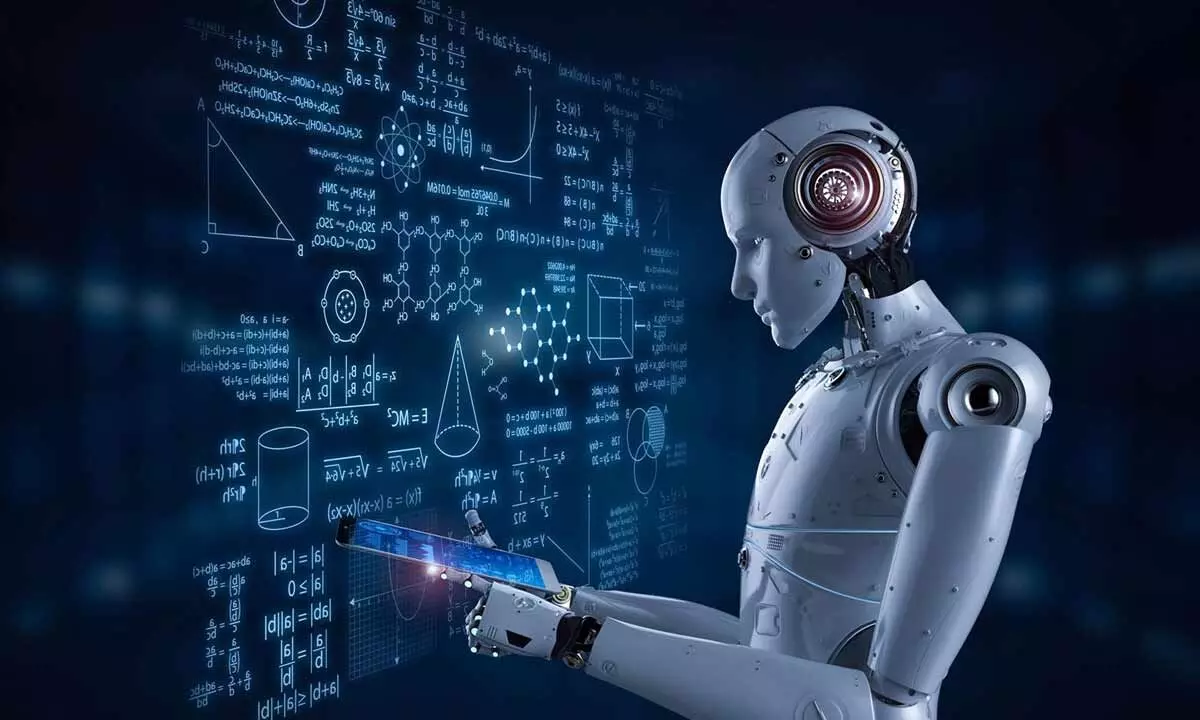Live
- Poonch terror attack: Security forces release sketches of two terrorists
- Constituency Watch: For BJP it’s fight for consolidation while Congress sees an opportunity to regain past glory in Nandurbar
- Congress, BRS, AIMIM following Muslim League agenda: J P Nadda
- PeopleStrong, Google Cloud join hands to transform employee experience with AI
- Siguler Guff invest Rs 240 crore in Hyderabad-based microfinance lender Spandana Sphoorty
- 'BJP CM will take oath in Odisha on June 10', roars PM Modi at Berhampur rally
- Five-year-old boy found dead after being swept away in Texas floodwaters
- Akhilesh appoints Shyam Lal Pal as new state president of SP
- Manipur: Educational institutions close for two days after heavy rains, hailstorm
- End of BJD rule on June 4, says Modi
Just In
The integration of AI & ML tools in education


Artificial Intelligence courses: Developing tomorrow’s leaders
Artificial Intelligence (AI) and Machine Learning (ML) aren’t just making waves in Silicon Valley; they’re knocking on the doors of our classrooms too.
Artificial Intelligence (AI) and Machine Learning (ML) aren’t just making waves in Silicon Valley; they’re knocking on the doors of our classrooms too. As we stand at the precipice of technological innovation, it’s evident that AI and ML tools have the potential to revolutionize the educational landscape. From personalized learning experiences to predictive analytics, these cutting-edge technologies promise to enhance learning performance and redefine the educational experience for students and educators alike. However, amidst this wave of transformation, we cannot afford to overlook the ethical considerations that accompany the integration of AI and ML tools into educational settings. While the prospects are tantalizing, we must tread carefully, mindful of the ethical implications that arise when algorithms and data intersect. Let’s look at these implications closely:
Bias and Discrimination: Challenging the Status Quo
AI and ML algorithms operate on the principle of learning from data patterns. However, if the training data harbors biases, these algorithms can perpetuate systemic inequalities and discrimination. Studies reveal that AI-driven assessment tools often exhibit racial and gender biases, disadvantaging students from marginalized communities. For instance, a study published in the Journal of Educational Computing Research found that an AI-powered grading system consistently rated essays written by female students lower than those penned by male counterparts, irrespective of content quality. Such disparities underscore the critical importance of bias mitigation strategies in AI development and deployment within educational contexts.
Data Privacy: Safeguarding Educational Assets
AI and ML tools often necessitate access to vast repositories of student information. Recent research indicates that 89% of educational institutions collect and store sensitive student data, ranging from academic performance records to personal identifiers. Ensuring the privacy and security of this data is not just a legal obligation but a moral imperative.
Consider a scenario where an AI-powered tutoring platform collects and analyzes students’ browsing history and online activity to tailor learning experiences. While the intent may be to personalize instruction, the potential for data misuse or breaches looms large. According to a survey, only 25% of educators feel adequately trained in data privacy practices, highlighting the urgent need for comprehensive privacy protocols in educational AI implementations.
Navigating Ethical Considerations for Responsible Implementation
In navigating the ethical labyrinth of AI and ML integration in education, several guiding principles emerge:
l Prioritizing Data Privacy: Educators must implement robust data privacy protocols, including encryption measures and restricted access controls, to safeguard student information from unauthorized access or misuse.
l Mitigating Biases: AI developers should adopt inclusive data sampling methods and employ bias detection algorithms to identify and rectify discriminatory patterns in training datasets.
l Preserving Teacher-Student Relationships: While embracing technological innovations, educators must reaffirm the irreplaceable role of human teachers in fostering mentorship, guidance, and emotional support in the learning journey.
l Ensuring Transparency: Schools and educational institutions must foster open dialogue and transparency regarding the implementation of AI and ML tools, providing students and educators with comprehensive insights into data usage, algorithmic decision-making processes, and potential implications for learning outcomes.

© 2024 Hyderabad Media House Limited/The Hans India. All rights reserved. Powered by hocalwire.com






